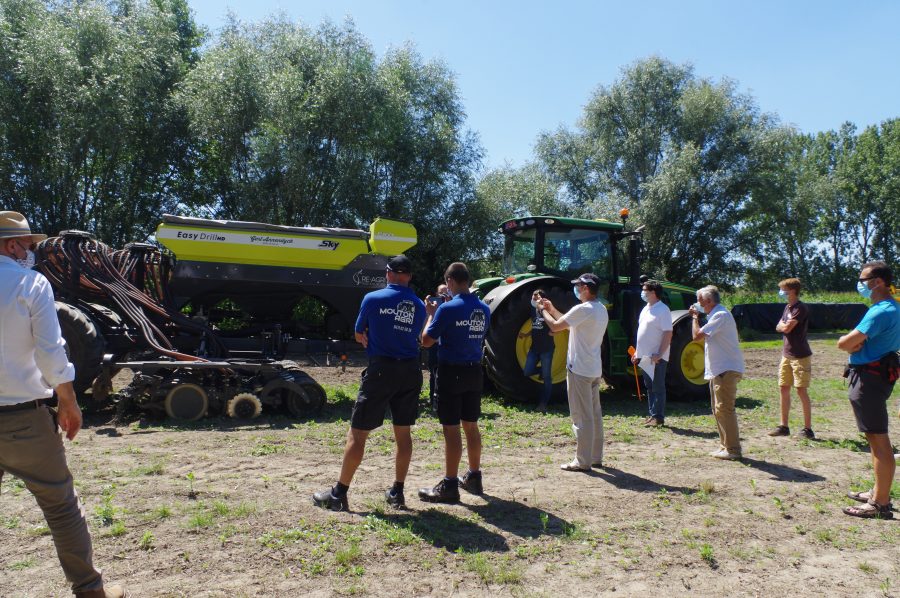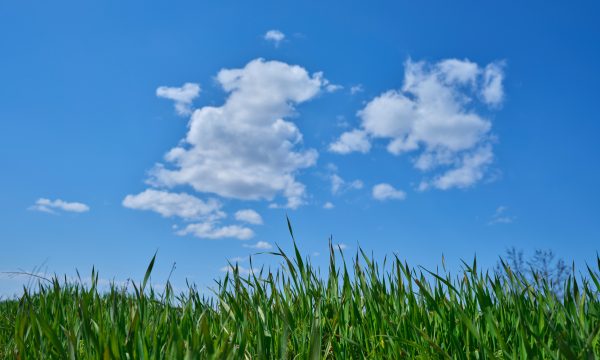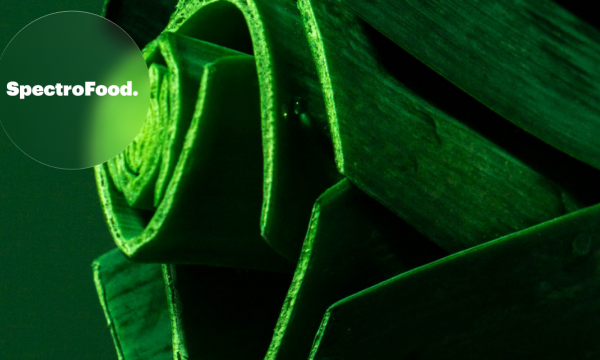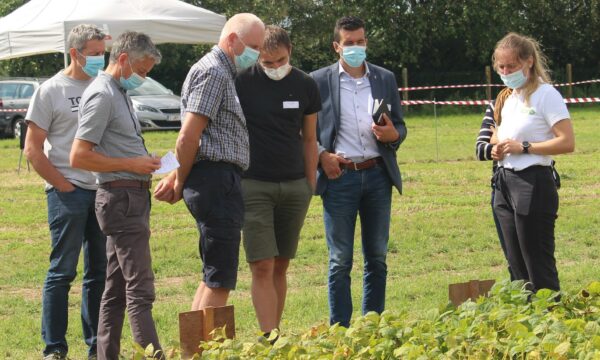Press release Farmers learn from farmers - why farm demos are so important for knowledge building among farmers
It was already suspected that mutual learning, whether or not via farm demos, is essential for knowledge development among farmers. Thanks to the research of ILVO- and KU Leuven- education specialist Hanne Cooreman, it has now also been unraveled and confirmed why this is in fact so: demos for and with farmers provide interactive knowledge creation, with opportunities to gain sensory experiences and especially to participate in facilitated discussions. In other words, dialogue is better than monologue, and questions and assignments for participants are stimulating. Or better yet, have them do something so that they engage both head and hands in the topic of the demo.
In this way, demos are triggers for connecting with and positioning oneself in relation to others, adding new knowledge on top of existing knowledge, thinking critically about existing and new methods, and applying new insights. "That pedagogical knowledge can now be used to further leverage learning-from-each other in knowledge dissemination for sustainability in agriculture," says Hanne Cooreman. "For example, we advocate expanding the audience of demos to include other players within agriculture, a new concept called embedded on-farm demonstrations. In addition, it is also important to encourage engagement and trust, as these prove essential for a demo with impact."

Farm demos with (more) impact
In addition to these practice-oriented questions, there was also a more fundamental question, but one that remained unanswered after the AgriDemo-F2F project: "How exactly does peer learning among farmers work, and how can the process promote learning for sustainable agriculture?" Hanne Cooreman, a researcher at ILVO and KU Leuven, approached this question from a pedagogical perspective. She found that the success of peer learning among farmers relies on interactivity, sensory experiences, and engagement and trust.
Listening to and watching farmers
Through an in-depth literature review, three educational fields relevant to agricultural demonstrations as learning environments were examined. Specifically, these were peer learning, adult education, and sustainable development education. These fields were found to often put forward similar effective learning processes: interactive co-creation of knowledge, initiation of communication and engagement. That theoretical knowledge was applied to and further elaborated for farm demonstrations , distinguishing two functions: the demo as a tactile space and the demo as a space for transformative learning. That is, a distinction was made between the sensory interest (feeling crops, smelling soil, observing actions of colleagues in the environment, ...) and the process of knowledge building (can I apply this, what does this mean for my farm?). Within that framework, 30 European farm demos were looked at more closely, by combining different research techniques, including (1) a pre- and post-demonstration survey for attendees and demonstrators; (2) an observation tool completed by researchers; (3) structured telephone surveys, six months after each demo; and (4) video recordings of Flemish demos.
Especially the use of the video data proved to be a game changer in the research. Hanne Cooreman therefore developed guidelines for the collection of video data for future research with similar purposes.
From pedagogical findings to new actions
The research shows that demos stimulate some essential, interrelated processes. These processes can be summarized as embedded and embodied interactive knowledge creation, with opportunities for sensory experiences and participation in facilitated discussions. This confirms the importance of demos, but there is even more potential for further knowledge dissemination. Indeed, demos trigger the development of four competencies in attendees and this can be further stimulated. Specifically, these are about (1) connecting and positioning in relation to others and the knowledge propagated by the demo; (2) integrating new knowledge by building on prior knowledge; (3) reflecting critically on current and new practices; and (4) implementing change based on new insights. In addition, the results point to the importance of a before-and-after process to foster engagement and trust.
Finally, Hanne Cooreman and her colleagues also argue for expanding the audience of demos to include other players within agriculture, a new concept called embedded on farm demonstrations. From a pedagogical perspective, these are authentic learning spaces where farmers and other stakeholders can explore and discuss agricultural practices together, in a socially embedded and physical way.



